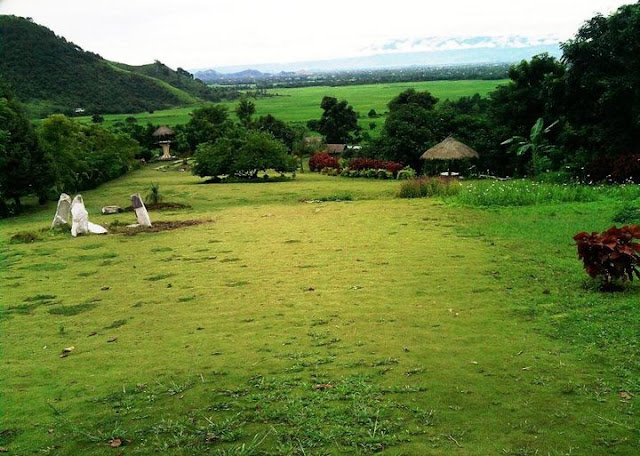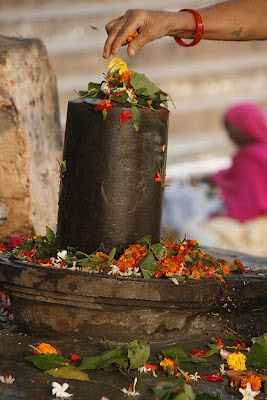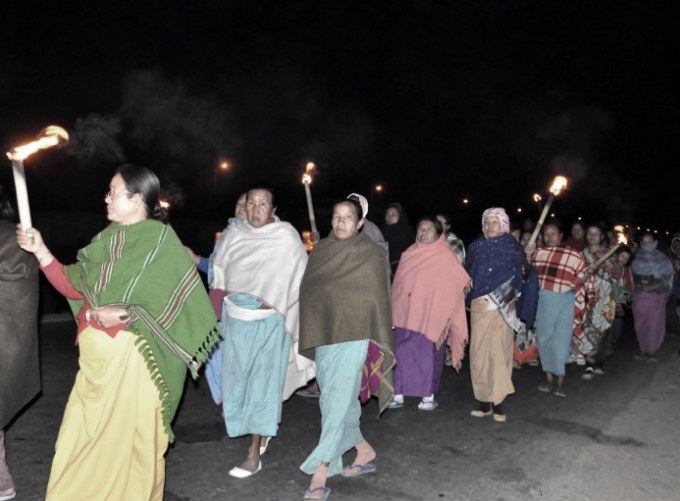A Notion of Natural Beauty Amidst the Imperfection
Man’s essential characteristic is his rational faculty. Man’s mind is his basic means of survival—his only means of gaining knowledge... In order to sustain its life, every living species has to follow a certain course of action required by its nature. The action required to sustain human life is primarily intellectual: everything man needs has to be discovered by his mind and produced by his effort. Production is the application of reason to the problem of survival.
Ayn Rand in Capitalism: The Unknown Ideal
 |
| A breathtaking landscape from Imphal East. Photo by Deepak Shijagurumayum |
Hilly regions are well known for their extravagant natural beauty. I take pride in the fact that I belong to one such land, where the blue mountains kiss the azure skies and the green shrouds adorn the breathtaking landscapes. The lonely, winding highways could take your heart from the pinnacle of the highlands to the rock bottom of deep gorges with great delight, whilst you appreciate the sweeping views — such eye-appeal, which could even make Venus self-conscious.
Each season brings along its inimitable characters. I would always put the cheerful spring sky on a pedestal, for those days draw the star out from the natural world. But it would not be fair to overlook the misty mornings of winter when the open spaces and the fields hide behind the white smokes of chill air, and when the hills drape itself in clean hoariness. The ceaseless torrential rain, laving the grime from the foliages to offer serene views, completes the cycle. No metaphor or a long muse, but only poetry and philosophy, can describe these ineffable experiences.
Has language too many shortcomings that clogs our understanding of the world? Pascal viewed that man is so necessarily mad that to not be mad would amount to another form of madness. Of course, thought is vital for our consciousness, and its limit caves in to the limit of our world. Nevertheless, as posited in the theory of knowledge, reason (rationality), sense perception and emotions shape our consciousness in those areas where language cannot tread. But that's another story.
The spectacle from atop the Sendra hillock — the floating masses of water hyacinth across the immense Loktak, the greens around its bailiwicks are mere amuse-guele. On the way to Moreh town, bordering Myanmar, you could see the flying clouds on the road, while the vista stretch across several folds of mountain ranges. In fact, this kind of delightful panorama is quite ubiquitous across the hills in the entire state, though the perception changes according to the territory. Regardless of the acute underdevelopment, the serenity is also prevalent in the Shiroi Kashung Peak in as much anyone can find in the Dzuko Valley. It is seemingly too less to mention only a few of these places.
Though a conflict zone in the western South-East Asia, nature has been lavish in providing Manipur with soaring mountains and valleys and waterfalls and rivers and gurgling streams and verdant vegetation and what not. Its unique topography, with a bowl-like structure comprising nine ranges of hills surrounding the lonely Imphal valley, accentuates the charms; it is a sui generis creation at its best. It is startling, nature has created the wondrous colours on its own. It is also surprising, at times, that the spectacular open grasslands at the foothills lie unpopulated as if we are showing our mercy.
The fact that beauty is only skin deep, is seriously consonant with our time. If there is a chance to be carried away by the mysticism of this place that we call our home, then we have a hell lot of possibility to get ourselves drowned in its vanity and barbarity. There is an utter lack of prospect to acknowledge this impressiveness of our land. And because, how we define our collective consciousness will unnecessarily have an adverse effect on the things, which we feel are so aesthetic and unique. When we talk about the state, it's about the violence committed by state and non-state actors; the corruption and bribery system that they say, has become social mores; the close proximity to the Golden Triangle across the border; and the painfully slow development works.
For that matter, there are several places across the world that remain out of reach, in spite of huge tourism potential and underutilised resources in abundance, owing to unfavourable socio-political reasons. The Swat region in north-west Pakistan, Israel, North Caucasus in Russia and southern Thailand are some of the random places that are worth a mention.
❝Primitive Delight
Among the bushes,
Lies the serpent
On its back we crawl
Like a snake we slid
The earth descends upon the sky
The pinnacle among the clouds
The bitter breeze keeps calling,
Comforts of the mundane life,
When the soul was lost in the distance.
Nature's wealth abound in the hills;
The narrow roads, twisting and turns
Mount's unremembered splendours
Beside deep gorges scaling down,
Taking the heart into the depth.❞
This poem was written while I was travelling on one of the highways that connects the state to the other parts of the country. The problem arises here if I cite the reason for my journey. Despite the beauty galore, Manipur is set in a wretched locale, which is a perfect breeding ground for armed rebels and warlordism. It is a place where policy makers, on one hand, elucidate that it should be guarded militarily. On the other hand, a violent resistance movement is waged against the establishment. The conflict is tearing apart the social fabrics, the economic foundation, and the polity is tantamount to the state of nature. It is akin to someone hollering at us to go away. Leave the place or get ourselves ready for its bloody theatre of the absurd.
But, ultimately, what we need is the will to march ahead along with other societies. The unsurpassed beautiful spots should be not confined to a handful of travellers, or allowed as hunting grounds for the rebels and the armies. For long we have been denied the chance to appreciate the magnificence in our own backyard. There are government's efforts, formulating the State Tourism Policy that proposes to develop centres in Loktak and set up several ethnic/adventure tourism circuits in the hill districts in recent times — but these are simply lacking. There might be more projects in the pipeline and festivals are being organised as a part of the Look East Policy, but their effects in highlighting the place are doubtful. Even with those heartfelt efforts, gunshots and bombs will always drive away the visitors. The problem is not about lack of development funds, but rather the deplorable contest for political authority in the state.
In these states of affairs, we can discern the apparent shackles of beauty and reason. The truth of the land has manifested itself in the duality of being beautiful and, unfortunately, of being deficit in rationality. Is it because there is no reason in beauty or there is no beauty in reason? Either ways, there is no doubt about the existence of umpteen places that embellish our land, and we need to cultivate the virtue of reason. For its paucity — with the culture of vice and violence — has caused havoc in our paradise. George Bernard Shaw might have seen such a situation, when he said: “The reasonable man adapts himself to the world; the unreasonable one persists in trying to adapt the world to himself. Therefore all progress depends on the unreasonable man.” The dream about Switzerland, that it would be one day hyped as Manipur of the West makes the heart somehow lighter.







Comments
Post a Comment